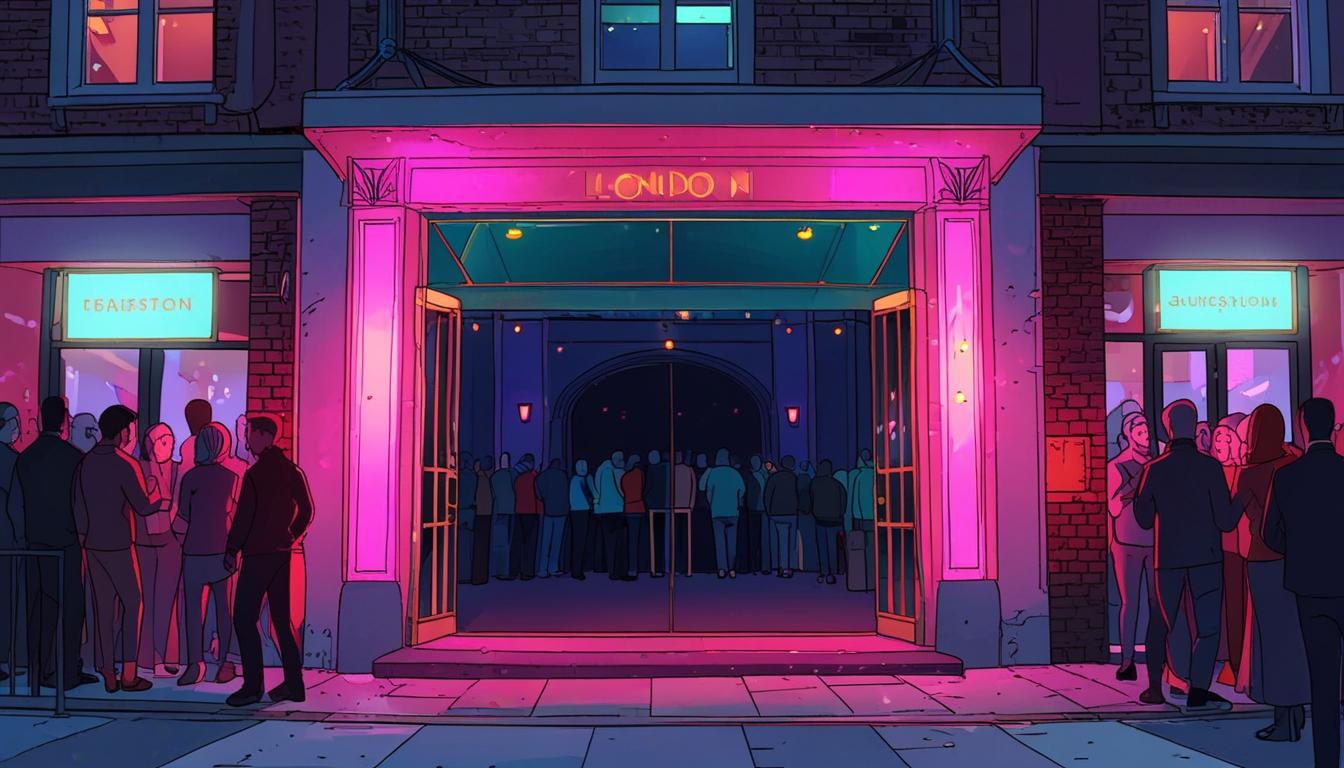London's Nightlife: A Reawakening Amidst Challenges
Nathanael Williams, a former musician and gig promoter, now co-owns two of London’s prominent nightclubs, Colour Factory in Hackney Wick and Jumbi in Peckham. Yet, the reality of running nightclubs has been less glamorous than he envisioned. “When I first got the keys I was like: ‘This is going to be amazing, I can meet all of these artists, I’m going to be down amongst the people...’ but most of the time I do what most businesses do: I look at spreadsheets,” he notes, reflecting on the day-to-day struggles that accompany the allure of nightlife.
The late-night hospitality scene in London has been under significant financial strain, particularly since the onset of the pandemic. According to the Night Time Industries Association, the UK has reportedly lost a third of its clubs since 2020, with Williams himself having to close Moko, a Tottenham club, last September. However, amidst these challenges, there is a growing sense of optimism that London’s nightlife may be poised for a revival.
Recently, the Labour government launched a noteworthy review of UK licensing laws, granting Mayor Sadiq Khan new powers to override local council decisions on late-night venues. This initiative, positioned as a means to reduce red tape, was publicly championed by key government figures, including Chancellor Rachel Reeves and Deputy Prime Minister Angela Rayner, who showcased their support with a visit to a Soho club.
The new framework may already be making waves. Earlier this year, Westminster City Council imposed restrictions on the late-night licence for the iconic Blue Note jazz bar, arguing that a closing time of 1am could lead to increased crime in the West End. However, the venue successfully appealed the decision, paving the way for a new outpost in Covent Garden. Steven Bensusan, the bar’s president, expressed optimism following the outcome, stating, “Artists like the Ezra Collective, Nubya Garcia and others started a new wave of jazz and jazz-related music that we want to be a part of.”
While there is hope in the air, the outcome of the broader licensing overhaul remains uncertain. A key proposal includes transferring licensing guidance from the Home Office—focused predominantly on public safety—to the Department for Culture, Media and Sport, which may be more receptive to recognising nightlife as a cultural asset. This shift could mark a significant change in how night venues are regulated, potentially revitalising the industry.
However, the nightlife sector still grapples with pressing challenges, including escalating business rates, alcohol levies, and soaring rents. In addition, changing consumption patterns have emerged, with younger individuals reportedly drinking less and prioritising day-time festivals, which poses a competitive threat to traditional dance venues that are often forced to close earlier.
Despite these obstacles, demand for nightlife remains robust, with West End theatres recently achieving record attendance. Venues such as All My Friends, Spiritland, and Next Door Records are finding success by offering a laid-back, living room atmosphere for patrons who may shy away from traditional clubbing experiences. Furthermore, public events like the Deleted Scenes and Soho Reading Series have generated excitement around London's literary scene, further diversifying the offerings available to night-time revellers.
As the pilot programme unfolds, it is expected to extend to other cities across the UK. Londoners can look forward to a summer with more opportunities for late-night enjoyment, signalling a potential renaissance for the city’s nightlife.
Amidst these varied challenges and changes, the formation of the new Nightlife Taskforce—chaired by Cameron Leslie, co-founder of fabric nightclub and including Williams among its members—aims to address the broad spectrum of issues facing London's nightlife. This taskforce will be pivotal in navigating the complexities of a rejuvenated late-night economy, potentially bringing fresh perspectives to longstanding problems.
With Mayor Khan's engagement and the industry's resilience, London’s nightlife may be on the cusp of a significant transformation, allowing it to thrive once again in the face of adversity.
##Reference Map:
- Paragraph 1 – [1], [4]
- Paragraph 2 – [1], [2]
- Paragraph 3 – [2], [5]
- Paragraph 4 – [2], [6]
- Paragraph 5 – [3], [7]
- Paragraph 6 – [1], [5]
Source: Noah Wire Services
